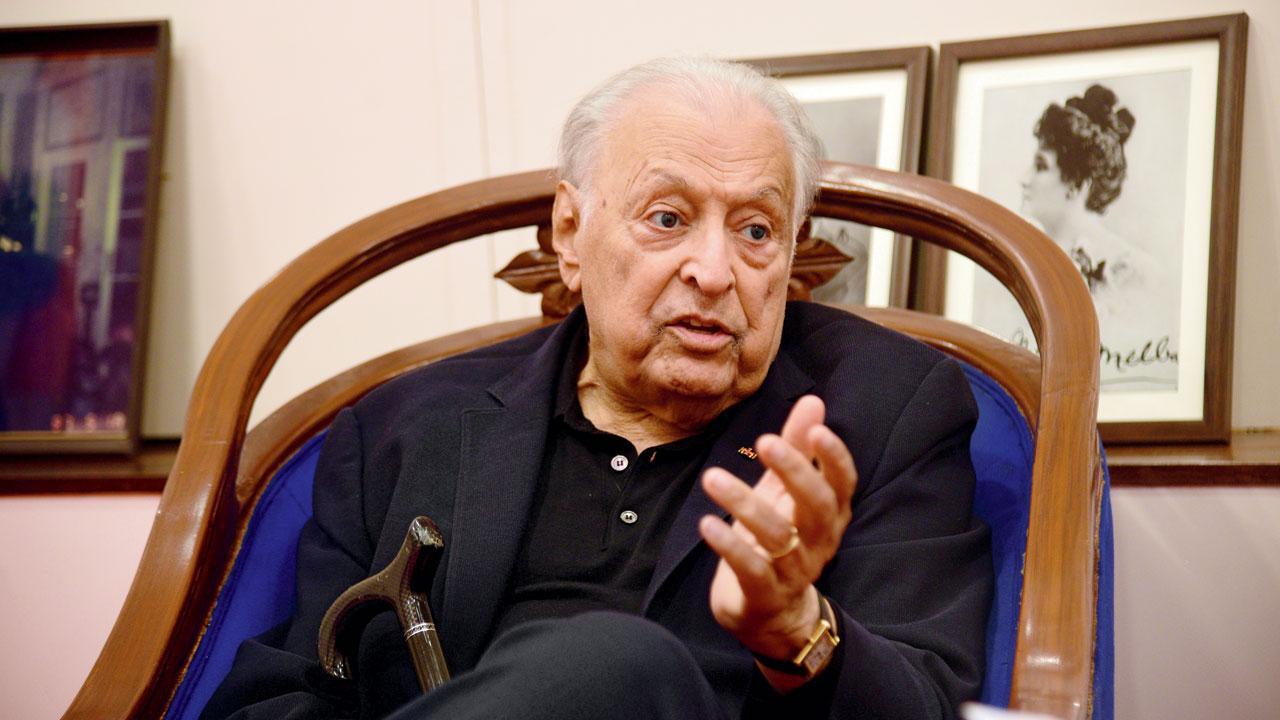Home / Mumbai / Mumbai News / Article /
Madness of religious persecution ought to end, says maestro
Updated On: 19 August, 2023 07:17 AM IST | Mumbai | A Correspondent
In the city for twin performances, Zubin Mehta gets candid discussing the personal, political and the power of music

Zubin Mehta, who will lead Symphony Orchestra of India over two concerts, at NCPA on Friday. Pic/Pradeep Dhivar
Thursday night saw 87-year-old legendary conductor Zubin Mehta, who returns to the city of his birth for concerts with the Symphony Orchestra of India, let his guard down during an intimate conversation and dinner evening hosted at the Taj, Apollo Bunder, where he regaled guests with his early memories of the city. Mehta was at his unbridled best, both, when speaking of the personal and the political.
‘I still count in Gujarati’
This quaint revelation from conductor extraordinaire Zubin Mehta, 87, in response to a question posed by senior journalist Karan Thapar was one of the many gems that an audience gathered at the Crystal Room, Taj Mahal Palace & Towers, on Thursday night, were treated to as part of the Rendezvous series of conversations; Courtesy, The Chambers, the evening saw Dr Pheroza Godrej, Shobhaa De, Monica Vaziralli and the city’s well-heeled celebrate one of Mumbai’s tallest talents in music. Young musicians from the Mehli Mehta Foundation set the tone for the evening, including presenting a special choral tune created for the legend titled, Dear Maestro Mehta.



